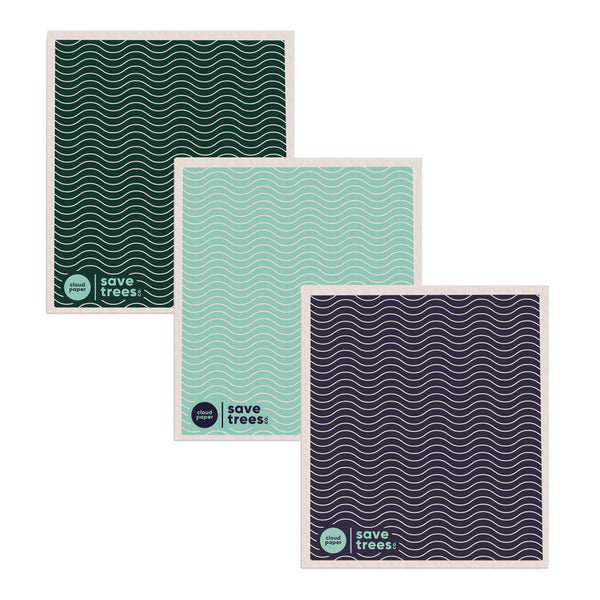Save even more trees and try...

Swish Cloth - Pack of Three
Frequency: Every 4 months

Bamboo Tissues - 12 Boxes
Frequency: Every 6 months

There’s a pretty common misconception that to be more sustainable you have to sell your first born, get a second job, or forgo retirement. While it’s true that some eco-friendly products can cost a bit more, in general the difference is usually small.
And the gains made from combatting climate change, providing workers with a living wage, and contributing to the health of humans and the planet are priceless. There’s room in almost anyone’s budget to make small sacrifices for the greater good.
And if the budget is tight, there are countless things anyone can do to help the planet that don’t cost a dime. Especially in the kitchen. With a few small adjustments, you can be well on your way to a zero-waste kitchen lifestyle.
Here we’ve compiled some simple ideas and products that help you green your kitchen without breaking the bank.

The number one most important sustainable change you can make in the kitchen? Reduce your food waste. Across the country, landfills are filled to the brim with food scraps and wasted food. In this oxygen-deprived environment, food waste barely breaks down.
Just ask the archaeologist who discovered some 25-year-old perfectly preserved guacamole during a landfill excavation!
The food in landfills slowly decomposes, releasing methane, a greenhouse gas that contributes to warming global temperatures. In America, nearly 40% of food is wasted, and accounts for 16% of methane emissions.
Let’s put a stop to that. You can easily reduce your food waste by doing the following:

Traditional kitchen cleaners often contain chemicals that are harmful to humans and the planet. Solvents, petrochemicals, and antimicrobials are considered chemicals of concern that should be avoided for health and environmental reasons. These chemicals can cause health issues in humans, and when they’re poured down drains they end up polluting waterways and wildlife.
Eco-friendly cleaning products are safe, nontoxic, and biodegradable. This means they break down into water and other harmless substances. Our favorite sustainable cleaning products for the kitchen are made by Blueland. They make nontoxic dish soap, detergent, and multipurpose cleaners that are just as safe as they are effective. Or if you're the DIY type, you can easily make your own eco-friendly cleaning products for the kitchen and beyond.
You can also help save forests by using tree-free paper products for your kitchen clean-ups. Traditional disposable paper towels are made from old growth trees and are contributing to global deforestation. Deforestation leads to loss of biodiversity, plant and animal extinction, and climate change.
Go tree-free and use bamboo paper towels. They’re just as absorbent but they’re made with fast-growing, sustainable bamboo. Our subscription options mean you only pay for what you need, nothing more and nothing less!

Tackling single-use plastic in the kitchen can seem overwhelming. This is where our complete guide to living sustainably can help you to identify what the biggest problem is in your own kitchen. Check out the guide for how to conduct a trash audit and set goals for reducing plastic use.
A few quick wins could be to ban plastic wrap and plastic bags from your kitchen. If you don’t have lids for your food storage containers, beeswax wraps are a great alternative to plastic wrap. While they do require an initial investment, the wraps are washable and reusable over and over again.
You may find that a kitchen towel or even a plate will cover your leftovers just fine too.
There are dozens of options for replacing plastic bags in your kitchen. At the store, cloth bags can be used for produce and bulk bin items. Decline the plastic shopping bags offered — just make sure you bring your own.
If you find you use a lot of zip-top plastic bags, consider silicone. They will cost you up front, but they’re sturdy and made to last, which will average the cost out over time. You can also find compostable bags, like the BioBag. They make sizes ranging from snack to full-on trash bags.
Reducing single-use plastic in your kitchen is a huge undertaking. It’s helpful to celebrate small wins. The more you think about how plastic is present in your kitchen, the easier it will be to find ways to eliminate it. Give yourself time and recognize that progress — not perfection — is the goal!
For more eco-friendly living tips and inspiration, be sure to follow us on Instagram!